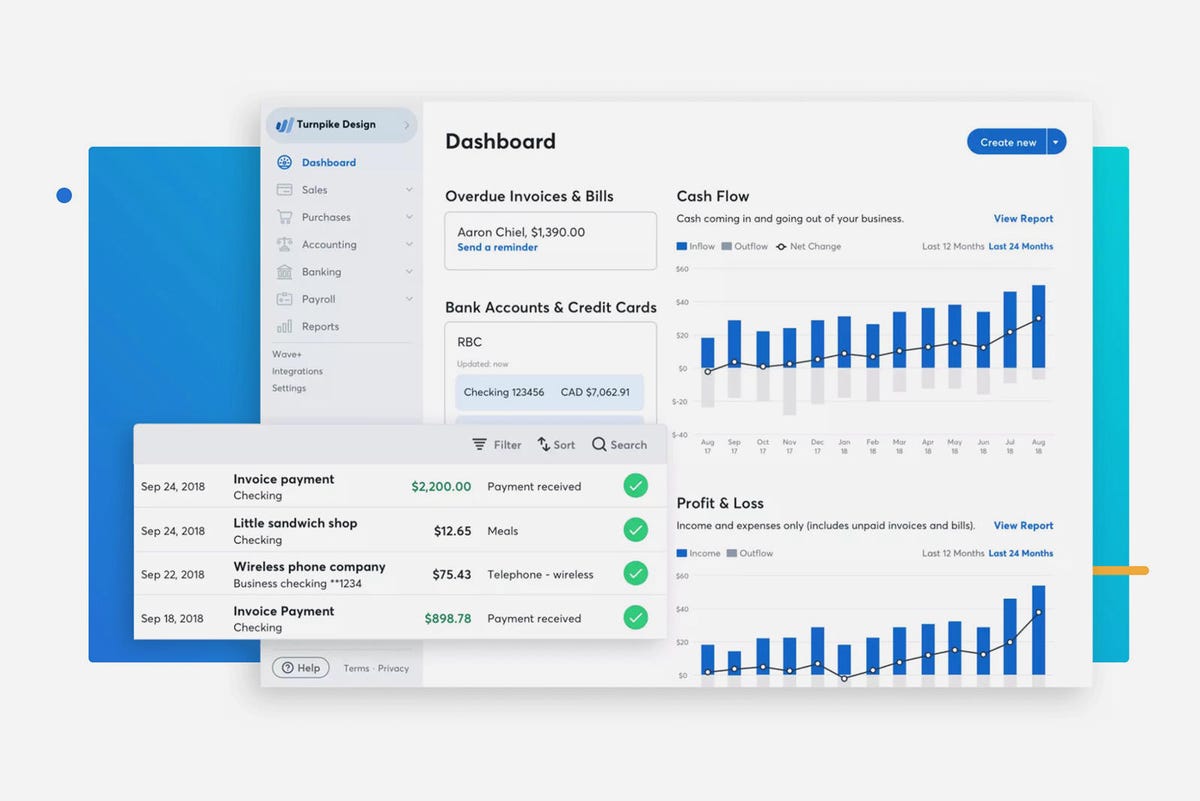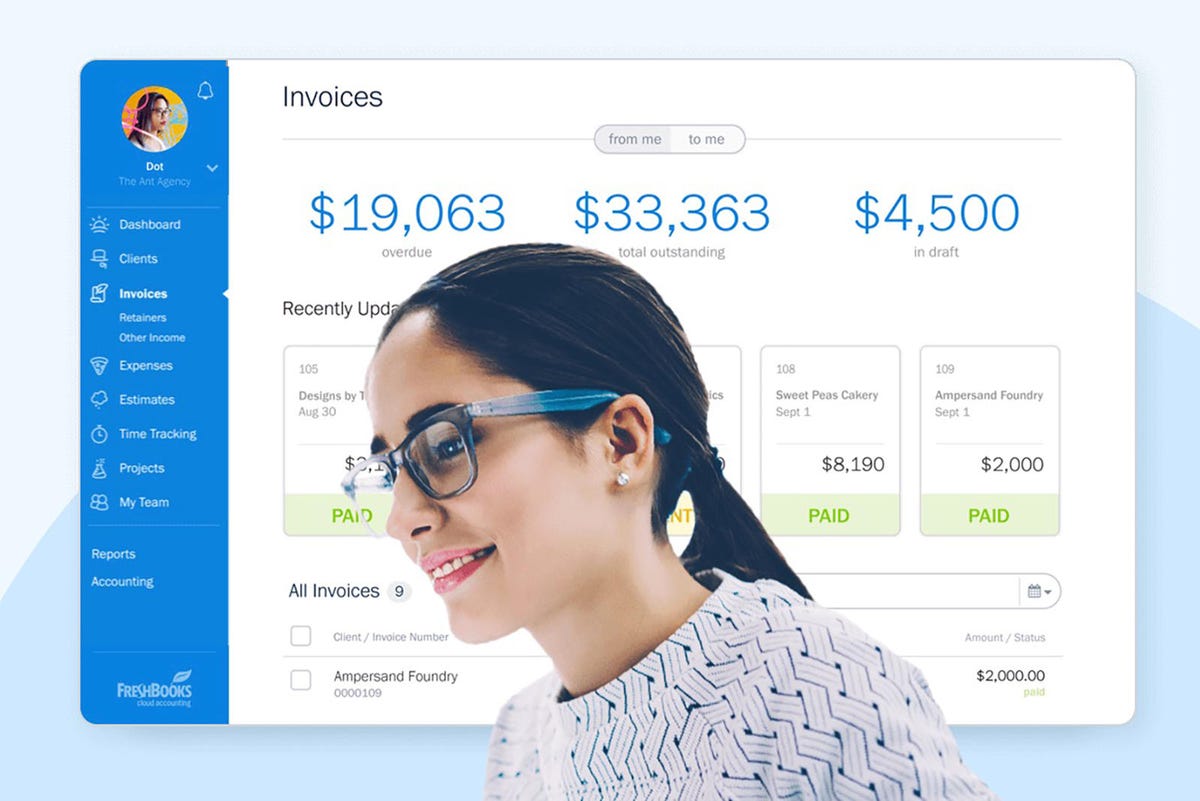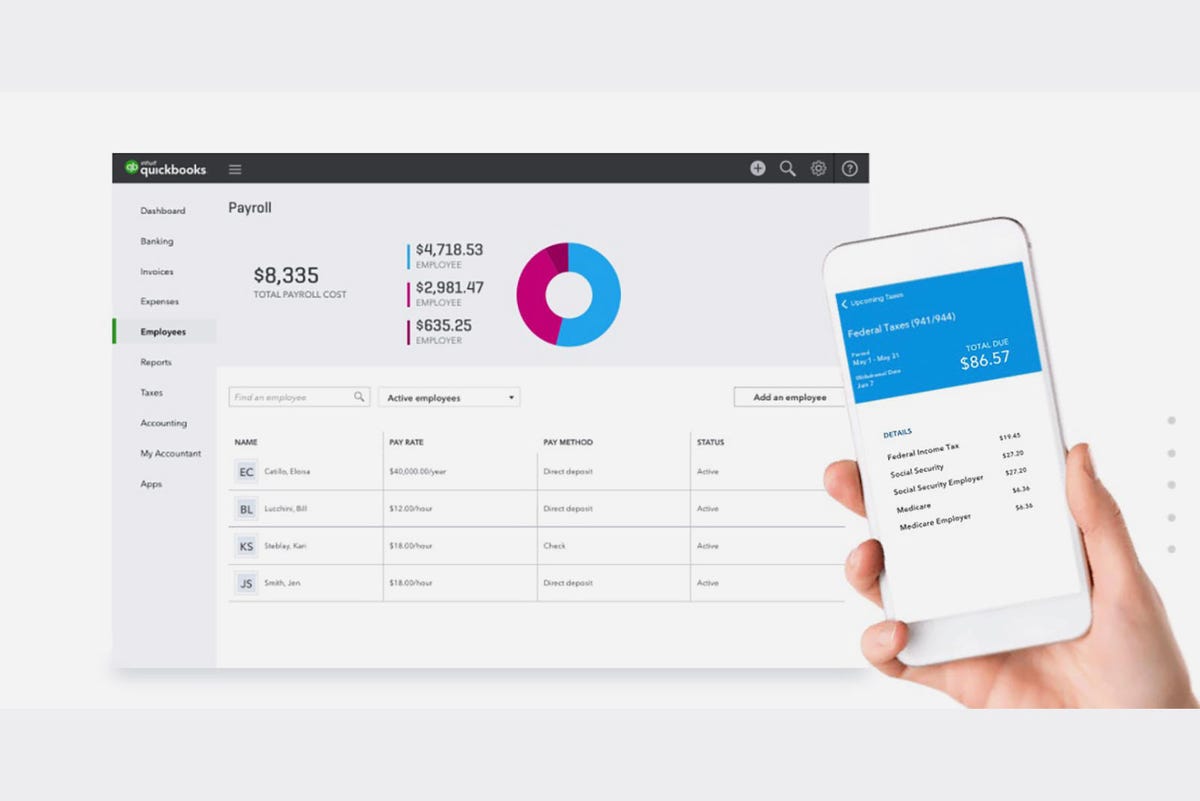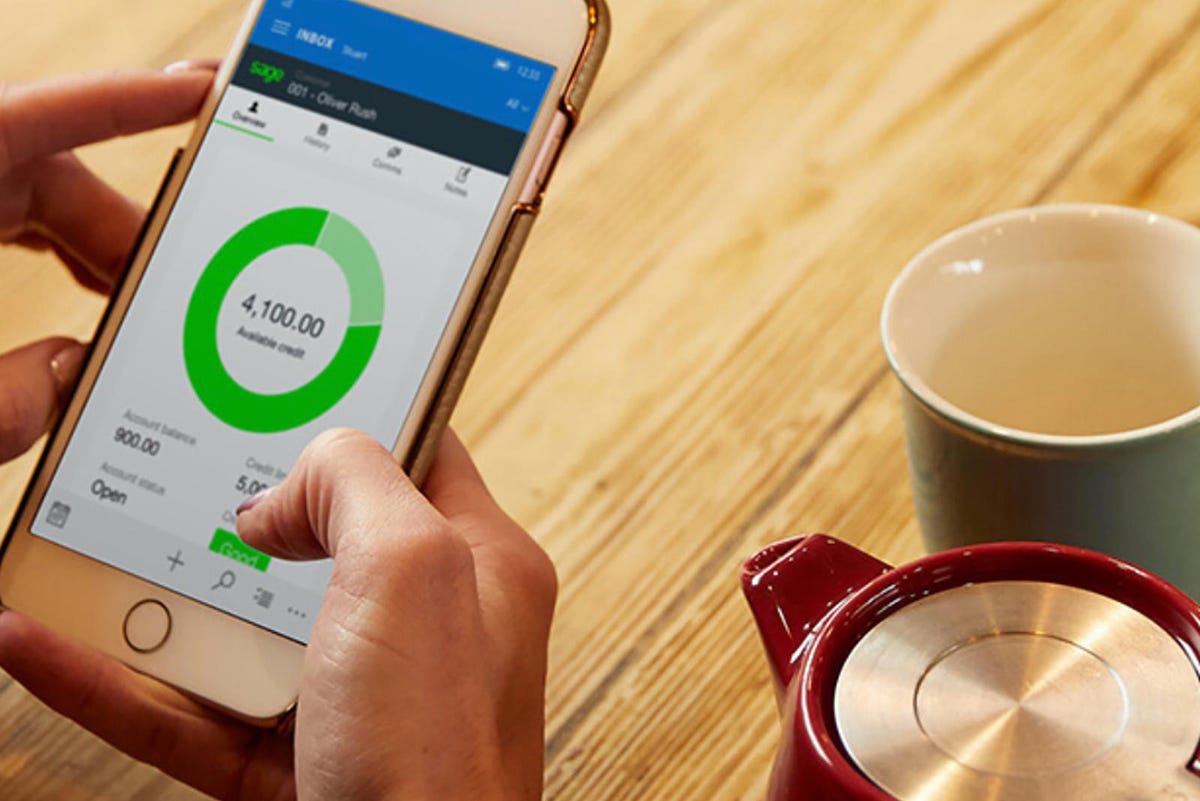Businesses of every size need an accounting system to track revenues and expenses, process invoices and send out bills, and track assets and liabilities. There are many things to consider.
Can your three-person shop make do with simple, user-friendly bookkeeping software package? Does your mid-sized business need a sophisticated system that uses process automation? Do you need payroll or inventory management features? If you already have other systems like ERP, customer relationship management or sales, will the accounting software integrate with those systems? How much of your accounting needs to be done (or accessible) through mobile access?
Does your accounting software vendor have online and in-person resources that/who can help answer questions as they come up? Will the accounting package support project management and expense tracking?
These considerations, as well as usability, regulatory compliance, cost, software integration with other applications such as customer relationship management and sales, and the software’s ability to grow with your business, should all be in your evaluation plan. We reviewed six accounting packages — check them out below.
Best for freelancers, sole proprietors, and small businesses
Acquired by HR Block in 2019, Wave Accounting provides basic functions such as Sales, Purchases, Accounting, Banking, Payroll, and Reports.
Featuring easy navigation and a user-friendly interface, the application itself is free, with additional fees for payments and payroll processing. Wave offers a financial and tax outsource service starting at $149 per month. Wave supports multi-currency accounting, a must for companies doing business internationally.
Wave can integrate with more than 1,500 applications. It has an excellent dashboard that provides an snapshot view of cash flow and profit and loss. From the dashboard, you can click on invoices and bills to view underlying transactions.
Wave supports double-entry accounting, produces quarterly tax estimates, allows for customized, professional-looking invoices, and uses OCR technology to scan purchase receipts into the system. However, if you need to track inventory or billable hours, look for another package.
Cost: Free if you just use basic accounting functions, but charges per transaction if you process credit cards (2.9% plus 30 cents per transaction and 3.4% plus 30 cents per transaction for American Express). Bank ACH payments are charged at 1%, and Payroll costs $35/month plus $6/employee.
Pros
- Free, if you only use Wave for basic accounting, not payroll or payments
- Excellent user interface and navigation
- Easy to set up
- Supports double entry accounting
- Supports multi-currency
- Features intuitive, context-oriented help when you have questions
- Can integrate with over 1,500 applications
- Strong management of invoices and transactions
- Provides live support, training and pay-for accounting services if you need them
Cons
- Limited customization of invoices
- Can’t offer discounts
- Limited functionality on Android and iPhone
- Lacks time-based tracking
- Inability to track inventory
- Limited roster of reports
- Not really scalable to larger businesses with more complex accounting needs
Wave is a well-rounded accounting package for freelancers, sole proprietors, and very small businesses, although it has limited functionality if you need to track time and costs on a per project basis.
Best for freelancers, sole proprietors, and small businesses
FreshBooks accounting software supports double-entry accounting and contains modules for invoicing, expenses, time tracking, projects, payments, reporting, and general accounting.
Working intuitively on both desktops and mobile devices, FreshBooks includes project management capabilities, making it a good choice for businesses that work on a per-project basis and need to track billable hours. FreshBooks charges per-use based upon the number of clients that your company has.
For example, the FreshBook Lite plan charges as little as $15 per month for five or fewer clients. This monthly fee can scale up to $50 per month for 500 or more clients.
Note: FreshBooks automatically connects with financial institutions that you define for easy transaction transfer.
FreshBooks is a strong accounting package for freelancers, sole proprietors and small businesses, especially those that work on a per-project basis.
Cost: FreshBooks Lite is $15 per month and can be used for five or fewer clients. For $25/month, the FreshBooks Plus plan enables you to bill up to 50 clients, and for the $50/month premium plan, you can bill as many as 500 clients. Custom pricing is available above that level. Credit card payment transactions are billed at 2.9% plus 30 cents per transaction.
Pros
- Easy setup and attractive user interface.
- Now supports inventory management.
- Dashboard gives you an immediate snapshot overview of your finances.
- Supports import of bank transactions and accepts credit card payments.
- Features a help database and email and phone support.
- Enables you to set up retainers.
- Customized invoices.
- Great project management tools.
- Supports Android and iPhone apps.
- Supports time tracking.
Cons
- Little help with setting up the package.
- Lacks quarterly tax estimates.
- Mobile phone features are limited.
- There are limits to how much invoices can be customized.
Best for sole proprietors and small businesses
The beauty of Quickbooks is its intuitiveness. It is very easy for self-employed business owners without financial backgrounds to operate, and it can be upwardly scalable to where small businesses can use it. QuickBooks now comes with an interface to Intuit Turbotax that can also be set up if desired.
With QuickBooks, companies can track income and expenses, invoice and accept payments, maximize tax deductions, track sales and sales tax, capture and organize receipts, manage bills, track inventory and project profitability, and execute payroll and account reconciliation. Invoicing can be done in multiple languages.
QuickBooks also has a nice collection of customizable reports. Analytics are available with the Advanced version.
Cost: $15 per month plus free trial. Periodically, there are promotions for $7.50 per month.
Pros
- Intuitive user interface and navigation.
- Can assign business transactions to Schedule C categories.
- Estimates quarterly income taxes.
- Time tracking tools.
- Excellent support and help resources.
Cons
- Does not have advanced time tracking and project tracking.
- Invoices can’t be customized.
- Sales tax management must be performed manually.
New product features are not present on mobile apps. For those who want to take a test drive, QuickBooks offers a free 30-day trial.
Quickbooks is a highly scalable software that works for sole proprietors and small businesses.
Best for small, mid-sized, and enterprise-level businesses
Sage50 Cloud is a hybrid software that can run on premises or in cloud. It has full integration with Microsoft 365, but has one drawback in that it only runs on the Windows operating system. Sage50 is a highly sophisticated accounting software with a full complement of financial tools and customization options.
Sage 50 Cloud offers bill paying, invoicing, financial reconciliation, inventory management, job costing, and budgeting. It can manage financials for multiple companies. It also has versions tailored to specific industries such as construction, manufacturing and distribution.
Sage50 Cloud offers an accessible interface that conforms visually and behaviorally with the Microsoft Windows UI. It offers remote access, but it is fundamentally a desktop system.
Sage 50 can scale from small business to enterprise levels. The downside is that the software can be harder to master than others for non-accounting professionals. Entry-level Sage 50 Pro Accounting runs a little over $500/year for a single-user license.
It’s a good fit for small, mid-sized and enterprise-level businesses that seek robust financials and inventory management — and that need their accounting system to grow with them.
Cost: Sage 50cloud Pro Accounting is $567/year. Premium Accounting is $850 per year for a single user license, and Quantum Accounting is $1,404/year for one user. Businesses that wish to integrateSage50 with Microsoft 365 pay an additional $15 per user per month.
Pros
- A robust accounting package that includes AR, AP, a chart of accounts, payroll, inventory and virtually every type of report you will ever need.
- Multi-currency.
- Training and live support are available.
- Supports double entry accounting.
Cons
- Setup can be complicated.
- User interface is somewhat dated.
- Does not support quarterly taxes.
Best for small, startup businesses
Xero is an excellent platform for small businesses. It features double entry accounting, sales, purchases, bills and expenses, inventory, and payroll. You can customize and create customer, supplier, employee, and item records, use the records in invoices, purchase orders, and quotes, and even manage your fixed assets. If you’ve been using another system, it is also very easy to transport records from other systems into Xero, which saves time and effort.
Xero’s dashboard provides relatively easy setup. Its user interface is pleasing and its navigation intuitive.
For users who have projects to track, Xero is set up for project and expense tracking.
Cost: After a 30-day free trial, you can subscribe to Xero Early ($9 per month), which limits monthly invoices and quotes to 20 invoices, and allows you to issue five bills. The next level up is Xero Growing ($30 per month), which allows unlimited billing and invoicing, quotes, and bills. At the premium level is Xero Established ($60 per month) which supports multi-currency.
Pros
- Solid dashboard.
- Project and expense tracking.
- Easy to set up.
- Comprehensive set of accounting tools.
- Fixed asset support.
- Inventory support.
- Easy transport of records from other systems
Cons
- Support is primarily by email, so you may have to wait.
- Payroll processing is only available for California and Texas.
- Does not support quarterly taxes.
- Lacks a large advisor network.
Best for small businesses
Zoho Books scales from basic accounting to full-featured software that is more customizable than most offerings. It integrates with Zoho project management and with Office 365, but its Achilles heel is that it doesn’t offer payroll processing outside of California and Texas.
Zoho Books includes Banking, Sales, Purchases, Time Tracking, Accounting, and Reports. This functionality can be used generically or customized. Zoho supports inventory management and workflow automation. Zoho’s user interface is well designed, and the software can integrate with a variety of mobile and desktop devices. User support is solid.
Basic Plan pricing starts at $9 per month and includes invoices, expense tracking, projects, and timesheets. However, you’re limited to 50 contacts, one user, one account and five automated workflows.
Zoho’s Standard Plan is $19 per month, and adds bills, vendor credits, reporting, and multi-level purchase. Meanwhile, professional level Zoho ($29 per month) gives businesses unlimited contacts and users, up to 10 automated workflows, and purchase orders, sales orders and inventory tracking.
Cost: Zoho offers a 14-day free trial where you can “kick the tires” of the product. After that, the Basic Plan is $9 per organization per month. This plan gives you up to 50 contacts, one user plus an accountant, and five automated workflows. It includes invoices, expense tracking, projects, time sheets, and budgeting tools. There is a $19/month per organization Standard plan as well. The Standard Plan expands the limits of Basic, and also includes bills, vendor credits, multilevel purchase approvals and integration with Twilio, which allows you to automate SMS messages to customers. The Professional version of Zoho ($29 per organization per month) supports unlimited contacts and users and 10 automated workflows per module, in addition to purchase orders, sales orders, and inventory tracking.
Zoho Books works for small businesses seeking fully featured, affordable accounting with a well-designed user interface and full support for mobile devices.
Pros
- Strong user interface and robust mobile apps.
- Customizable fields in record and transaction forms.
- Automated document management workflows.
- Strong user support.
Cons
- Time tracking must be tied to projects.
- The Zoho accountant partner network is limited.
- Payroll processing is only available for California and Texas
How we evaluated
Accounting software must be functional, affordable, scalable, usable, well supported by the vendor, and flexible in its integration options. One characteristic shared by all of the software packages that we evaluated was that pricing was based on use. This helps ensure that companies get the best value for their money since they only pay for what they consume.
Beyond that, different accounting software offerings have different strengths.
All accounting software packages address the core functionality of accounting, such as income and expenses, receivables and payables, but some software is richer in functionality than others.
There is accounting software that has an integrated payroll function, which is important for companies that must issue paychecks or direct deposits to employees. In other cases, the accounting software includes international capabilities, such as multi-currency processing, processing intelligence of other countries’ accounting regulations, and the ability to accept and remit foreign payments.
Some software offers customized versions for specific industry verticals and software that is designed for companies where project management is an integral part of their business. For organizations with in-house accounting expertise, there is also software that provides process automation for repetitive functions, such as invoice processing, and that feature artificial intelligence and machine learning.
These accounting packages also have varying abilities to integrate with other in-house systems such as ERP, office management, inventory management, and project management. Some feature large libraries of application programming interfaces (APIs) and even the opportunity to custom develop interfaces to other software; while other packages are very basic and offer little integration — but they can do the job for a sole proprietor or very small business at an attractive price point.
This broad spectrum of accounting functionality makes it important for companies to evaluate both their current and anticipated accounting needs upfront and to develop a written set of accounting software requirements before they go shopping for software.
Equally important is software that has a short learning curve and is easy to use, especially for smaller organizations that lack internal accounting expertise.
Usability considerations include an attractive user interface (UI), screen functions that are easy and intuitive to navigate, and also the ability to access the software from a plurality of devices that range from desktop computers to mobile smartphones and tablets.
We also looked at vendor support for the software. Did the vendor offer 24/7 service? Was online documentation helpful? Did users also have access to professional consulting services if they wanted them?
Collectively, these criteria identified certain software packages that were “best fits” for companies in different situations — from sole proprietors and one-person shops to small- and mid-size companies that could scale up to enterprise-level organizations. What we found was that “best fit” software varied, depending upon the needs of the company procuring it, and in some cases, the industry the company was in.




























